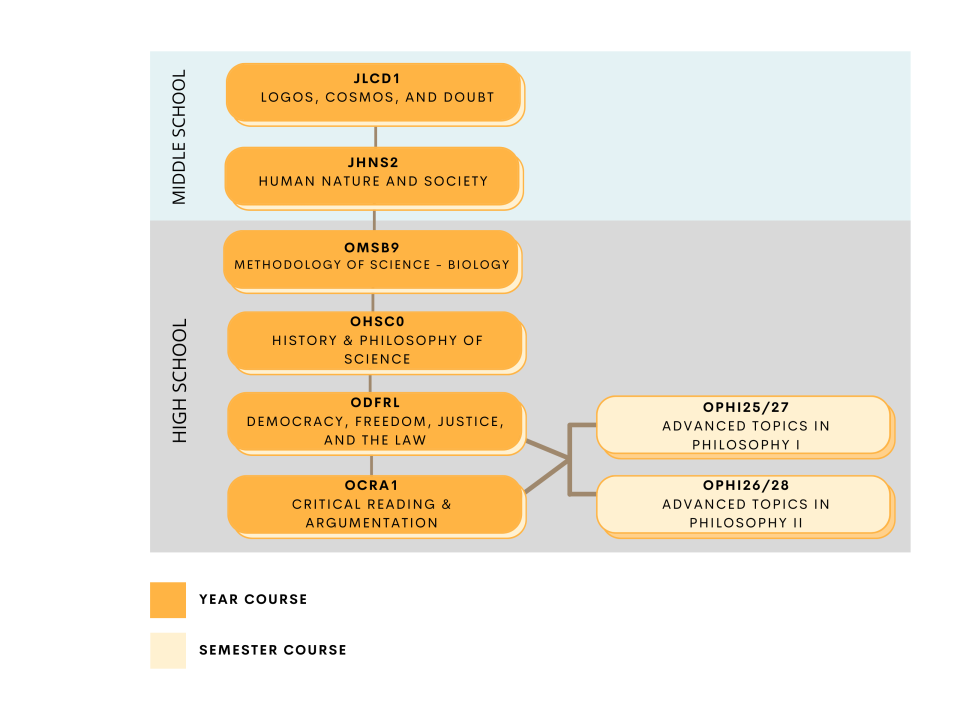In addition to the unique problems and questions that constitute its subject matter, philosophy makes use of a variety of intellectual tools and argumentative strategies that are widely applicable to both academic and informal inquiry. This course helps students develop these resources through a careful analysis of exemplary pieces of philosophical argument and literature. To this end, we explore philosophical thinking about modes of reasoning as well as such core philosophical topics as the existence of God, the nature and limits of knowledge, the nature and content of ethics, and the mind’s relation to the world. While the course emphasizes the cultivation of the tools and strategies of reading and argument, the materials encourage reflection on some of the foundational characteristics and assumptions in the disciplines of ethics, religion, and philosophy itself. Readings may include Plato, Aristotle, Aquinas, Leibniz, Voltaire, Locke, Mill, Hume, Kant, Camus, Descartes, Kafka, Nietzsche, as well as more contemporary authors such as Le Guin, Hursthouse, Vargas, Gyekye, Beebee, and Ismael.
Course Number
OCRA1
Level
High School
Semester
Year
Credit Hours
5.00
Subject
Prerequisites
Democracy, Freedom, and the Rule of Law (ODFRL) or placement assessment
